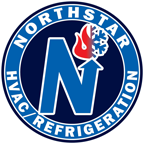Heat Pumps Explained: What Business Owners Should Know About This Energy-Efficient Technology
Written by Ed Rice
As sustainability targets tighten and energy costs rise, commercial and industrial building owners are reevaluating their HVAC strategies. One solution gaining traction? Heat pumps—a versatile, energy-efficient technology that provides both heating and cooling.
Once viewed as a residential-only option, today’s commercial heat pumps have evolved. Thanks to advances in system design, refrigerants, and controls, heat pumps are now a realistic and smart solution for many commercial and industrial environments.
Let’s break down what heat pumps are, how they work, and why business owners across the Northeast should be paying attention.
What Is a Heat Pump?
A heat pump is an HVAC system that transfers heat rather than generating it. It works by extracting heat from one location (air, water, or ground) and moving it to another using refrigerant, compressors, and coils.
In simple terms:
In cooling mode, it works like an air conditioner—pulling heat out of the building and releasing it outside.
In heating mode, it works in reverse—pulling heat from the air or ground outside and moving it indoors.
Because they transfer heat instead of generating it (like a furnace or boiler), heat pumps are highly energy-efficient and can significantly reduce energy consumption and emissions.
Why Heat Pumps Make Sense for Commercial & Industrial Buildings
Heat pumps are no longer just for homes. Large-capacity commercial systems are now available with the ability to serve:
Office buildings
Multi-use complexes
Schools and universities
Retail environments
Healthcare and assisted living
Industrial process zones (with proper design)
Benefits for business owners:
Lower Operating Costs – High efficiency means lower utility bills
All-Electric Heating & Cooling – Ideal for buildings pursuing electrification or decarbonization
Zoned Comfort Control – Especially when using VRF (Variable Refrigerant Flow) systems
Incentives & Rebates – Qualifies for Mass Save and IRA funding programs
Reduced Carbon Footprint – Aligns with BERDO, Local Law 97, and other emissions mandates
Less Maintenance – Compared to combustion-based systems
But… Do They Work in Cold Climates?
Yes—but system selection and design matter. Today’s cold-climate air-source heat pumps (ccASHPs) are designed to operate efficiently even when outdoor temps dip below freezing.
Still, not every application is a fit. Facilities with high heating demands or existing centralized systems may benefit more from hybrid approaches—using heat pumps for partial load and integrating with boilers for peak demands.
That’s why a site-specific assessment is key.
Where Heat Pumps Work Best
Retrofits: Replacing aging rooftop units or split systems
New construction: Especially with electrification goals
Buildings with multiple zones: Offices, schools, hotels
Facilities planning for decarbonization mandates
Why Northstar?
At Northstar Refrigeration, we’ve helped businesses across the Northeast evaluate, design, and implement energy-efficient heat pump systems tailored to their unique building types and budgets.
Whether you're planning a renovation, chasing rebates, or responding to compliance goals—we’re your partner for smart HVAC strategy.
Let’s Talk Heat Pumps
If you're curious whether a heat pump system is right for your facility, our experts are ready to help. From consultation to installation, we deliver custom solutions that perform.
📲 Call us at (508) 888-3692 to schedule your evaluation.
📍 Serving commercial and industrial clients across Massachusetts and the Northeast.


